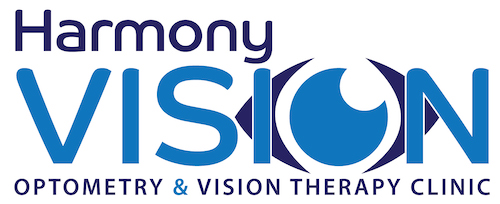Kid struggling to read?
Reading difficulties are a slippery slope… is it the child’s age or maturity, is it the teacher? When should you act? How long before frustration and avoidance sets in? Certainly it is easier to manage a reading problem in the early stages, before these emotionald and psychological barriers become an issue. The difficulty is in knowing where to turn.
The Optometrists at Harmony Vision been dealing with vision problems and their effect on reading for many years. They have extensive experience in treating vision problems that are associated with reading or learning problems. So how does a vision problem contribute to a reading difficulty? Generally speaking, hidden vision problems will contribute to a reading problem in a number of ways
1. The vision problem is a contributing condition. Often children with speech/language delays have vision delays as well. This is because children are developing their motor skills, language and visual skills all at the same time. Remediation often requires a combined approach from various professionals including speech/language therapists, occupational therapists and an Optometrist familiar with children’s vision. This is not to say that a child can or should do three therapies all at once, but collaboration to establish the treatment order is beneficial. Vision is often consider the dominant sense, but vision problems are usually treated in a few months, which is relatively short compared to the overall time they are likely to need in remediation overall.
2. The vision problem is the primary cause of the reading problem. Reading is a very complex task, requring a child to have developed many skills before learning to read. However, if a child has a signficant motor or eye muscle problem that prevents them from actually keeping a page clear and single, they will fail to reach their potential when reading. Children are not able to tell you that how they see is not the way others see. They will seldom report that the words are blurry or double. The most common symptoms will be words moving on the page, small writing is hard to see or general avoidance of reading or close tasks all together.
3. The vision problem occurs as a result of the reading. This may sound strange, but really is seems quite obvious when we point it out to parents. If a child has a reading problem, what are they asked to spend more time doing….? Reading of course! In these cases reading is not seen as a “pleasurable” thing, and as a result, the extra time spent doing close work along with the stress/fear of their performance results in eye strain. The focusing and eye teaming of a child’s visual system is carried out by very small muscles requiring finely-tuned movements. This is like an adult suffering with eye strain from too much computer work.
If you suspect your child is struggling with reading, a vision examination is recommended. Harmony Vision Optometrist’s are experienced at dealing with vision problems in children. Vision therapy and treatments for focusing or eye teaming disorders is well supported in the scientific literature.
